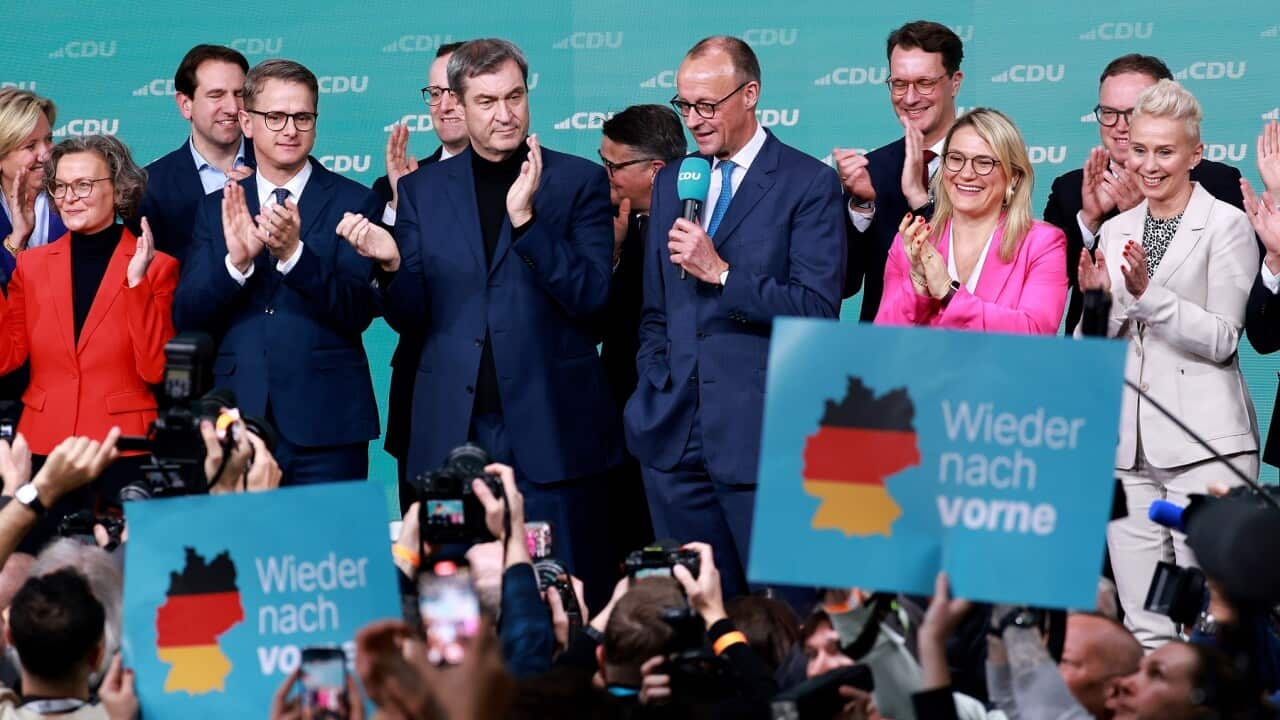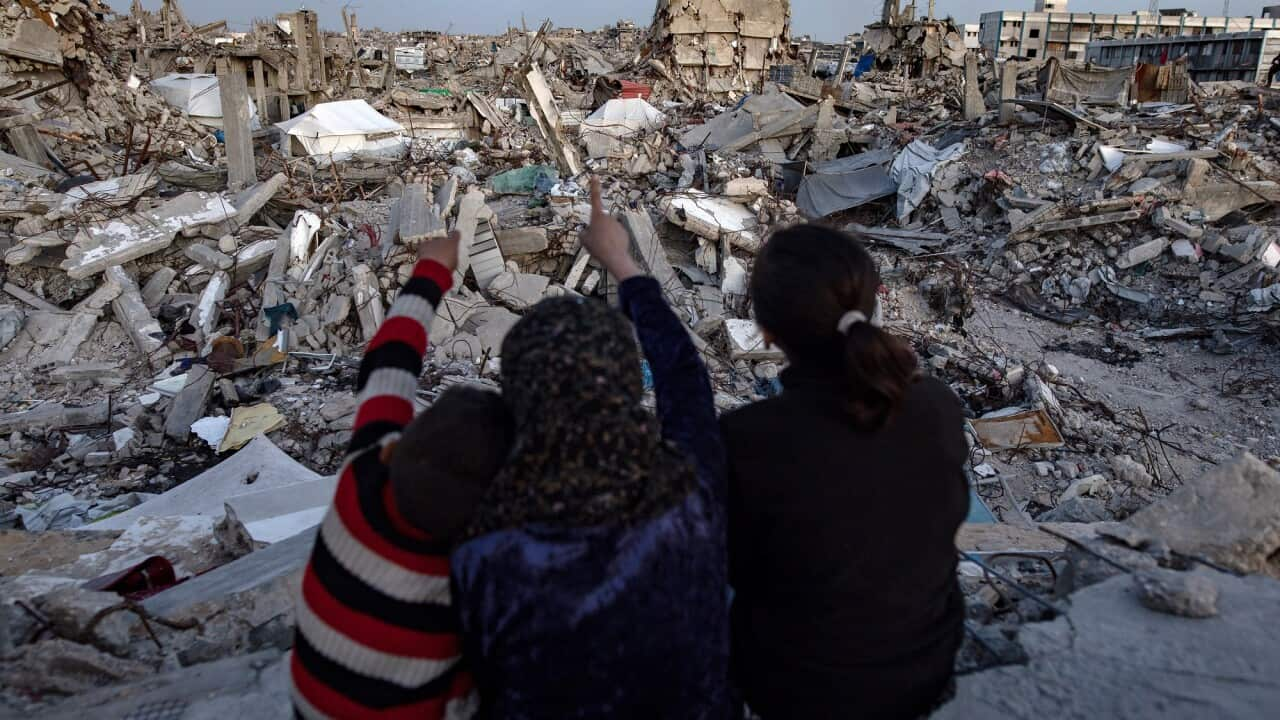TRANSCRIPT
Friedrich Merz bounded onto stage at the headquarters of his CDU party, cheered on by hundreds of supporters.
He’s in pole position to be Germany’s next chancellor - his first ever job in government.
And he's keen to get going.
“The world out there is not waiting for us and it is not waiting for lengthy coalition talks and negotiations. We must now quickly regain our ability to act so that we can do the right thing at home, so that we can be present in Europe again, so that the world realises that Germany is being governed reliably again.”
While the CDU will return to power, after three years in opposition, they’re not the only party celebrating.
Around one in five voters backed the Alternative Fur Deutschland… once unthinkable in post-war Germany.
Beatrix Von Storch is a longtime AFD member.
"This is a huge success for AfD, we doubled our numbers. And the issues, our talking points about migration and economy, these are the issues people want to have solved. What people voted for is a shift in the political direction what Germany is heading for. People want to have a change in politics, everyone who is voting for AfD want to have a change in politics for illegal migration and for economy and energy issues."
The AFD’s leader, Alice Weidel knows she won’t be invited to join a coalition, as the major parties refuse to work with her… but she made the offer anyway.
“Our hand will always be outstretched for government participation, to implement the will of the people, the will of Germany. We are ready to participate in government. Our hand is always outstretched to implement the will of the people."
Olaf Scholz’s time in the Chancellery will soon be coming to an end, although his SPD will likely be involved in the new government as a junior coalition partner.
“This is a bitter election result for the Social Democratic Party. This is also an electoral defeat. That, I think, has to be clearly stated after such a result.”
The night’s big surprise - the surge of the far-left Die Linke - which appears to have benefited from an anti-AFD youth vote.
Turnout was the highest since reunification, with migration and the economy the top issues on voters minds.
So, too, the rise of the far right.
Yannic cast his ballot in Munich.
"I just arrived at the bus station and thought one, two, three, four, five. Every fifth person has voted for a right-wing extremist party. My mother is not from Germany, does not possess a German passport and that worries me."
Now, coalition talks begin… and while Mr Merz is in a rush, they could last for weeks or even months.













